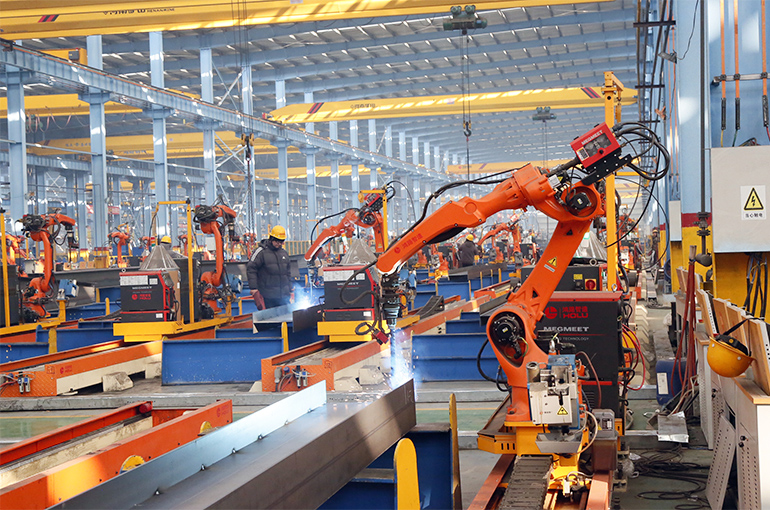 China's Services, Factory Activity Slow in January to Four-Month Low, Caixin PMI Shows
China's Services, Factory Activity Slow in January to Four-Month Low, Caixin PMI Shows(Yicai) Feb. 5 -- Activity in China's services and manufacturing sectors expanded at the slowest clip last month since October due to the seasonal business slowdown around the Chinese New Year holiday, according to a widely watched private gauge.
The Caixin services purchasing managers' index came in at 51 in January, down from 52.2 in December, data released by financial media group Caixin showed today. The figure was 51.5 in November, 52 in October, and 50.3 in September. A reading above 50 indicates expansion.
The Caixin manufacturing PMI stood at 50.1 in January, down on December's 50.5, November's five-month high of 51.5, and October's 50.3, and up on September's 49.3, according to data released on Feb. 3. Combining the services and manufacturing sectors, the composite PMI dropped to 51.1 last month from 51.4 the prior one.
The widely watched private gauge aligned with the official services and manufacturing PMI published by the National Bureau of Statistics, which saw the former slow to 50.3 in January from 52 in December, while the latter fell into contraction territory for the first time in three months at 49.1 from 50.1. The composite PMI dropped to 50.1 from 52.2.
"While both manufacturing and services saw improvements in supply and demand, the services sector exhibited weaker momentum," said Wang Zhe, senior economist at Caixin Insight Group. "Employment in both sectors fell significantly, and overall price levels remained subdued, particularly factory-gate prices in manufacturing.
Meanwhile, market optimism improved slightly but remained below its historical average," Wang noted.
"The stimulus policies introduced since last September have delivered tangible results, enabling China to achieve its annual economic growth target," Wang pointed out. "However, the effectiveness of the measures, including large-scale equipment upgrades and trade-in programs for consumer goods, may diminish in 2025," he added.
"In addition, rising uncertainty on the international stage could worsen China's export environment, posing significant economic challenges," according to Wang. "In this context, macroeconomic policies must be well-prepared and adjusted promptly to adapt to evolving circumstances."
Editor: Martin Kadiev